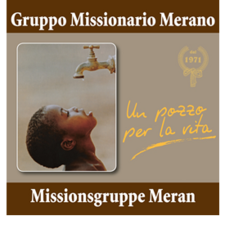Our presence
Since its beginning, GMM has worked mainly in Africa (in particular, apart from Benin and Togo, in Burkina Faso, Niger, Ghana, Camerun, Ciad, Kenya, Madagascar e Congo); in many occasion, often cooperating with other NGOs and associations, it has supported development project ad solidarity actions in South America( Brazil,Ecuador and Perù) and Europa (Albania). Currently the Group is active mainly in Benin and Togo.
Benin is one of the poorest country of Sub-Saharan Africa. With a small southern coast line, the Bight of Benin, the Country overlooks the Atlantic Ocean and borders Togo to the West, Nigeria to the East and Burkina Faso and Niger to the North.
Benin, that until 1975 was called Dahomey, is a Presidential Republic; Porto-Novo is the capital, but the seat of government is located in Cotonou. French is the official language.
The country cover an area of approximately 112.622 sq km, with a population of approximately 9.2 million, 42% of which concentrated in the cities; this makes Benin one of the most populous countries in Western Africa.
Social conditions are very poor: illiteracy rates is very high (more that 46% for men and 71% for women); there is less than 1 doctor for each 10.000 people, and serious endemic diseases are still present, like leper, malaria and parasitic diseases.
Big areas in the North of the country are affected by malnutrition (about 1 child out of 4 is underfeeded). Children mortality rate is 81 infant deaths per 1000 live births; life expectancy is 61,1 years for men and 63,5 years for women.
The per capita national gross product was 754$/year in 2008; the economy is mainly based on subsistence agriculture. Despite many efforts made to reduce the country’s dependence on foreign countries, Benin still has to largely rely international aids (by France and other members of the EU).
In Benin there are more than forty different ethnical groups; the mainly represented (data of 2002) are: Fon (39,2%), Adja (15,2%), Yoruba (12,3%), Bariba (9,2%), Peulh (7%), Ottamari (6,1%), Yoa-Lokpa (4%), Dendi (2,5%).
A famous international touristic destination Togo is a country affected by huge social differences. Like Benin, which Togo borders to East, it extends from the Gulf of Guinea in the South up to Burkina Faso in the North, bordering Ghana to West. It is a Presidential Republic, its capital is Lomè, in the South, and the official language is French.
The 43% of approximately 6.459.000 inhabitants (in a total area of 56.785 sq km) live in the cities. There are 37 ethnic groups, among which cui Éwé, Adjia, Mina, Tem-kabyé, Gurma, Kébu, Akposo, Ana, Ife.
There is a high infant mortality rate, 68 infant deaths per 1000 live births, that increases to 91/1000 within the first 5 years after birth, and life expectancy is 61,6 years for men and 64,9 for women. Illiteracy rate over 15 year age is 23,5% for men and 46,3% for women. Per capita GDP is 414$/year, with a 32% of people living under the poverty threshold.
Sources: UNFPA’s “State of World Population 2010”; www.uno.org (Onu); www.who.int (Oms).

